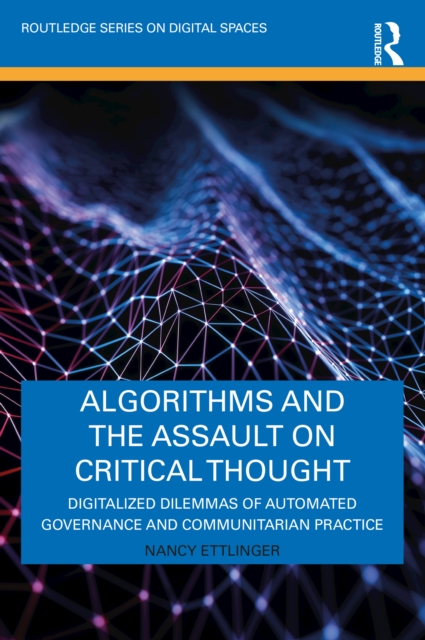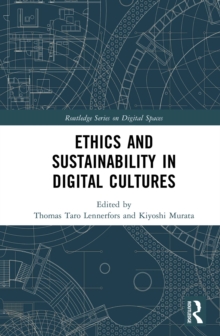
Algorithms and the Assault on Critical Thought : Digitalized Dilemmas of Automated Governance and Communitarian Practice PDF
by Nancy Ettlinger
Part of the Routledge Series on Digital Spaces series
Description
This book examines the digitalization of longstanding problems of technological advance that produce inequalities and automated governance, which relieves subjects of agency and critical thought, and prompts a need to weaponize thoughtfulness against technocratic designs.
The book situates digital-era problems relative to those of previous sociotechnical milieux and argues that technical advance perennially embeds corrosive effects on social relations and relations of production, recognizing variation across contexts and relative to entrenched societal hierarchies of race and other axes of difference and their intersections. Societal tolerance, despite abundant evidence for harmful effects of digital technologies, requires attention. The book explains blindness to social injustice by technocratic thinking delivered through education as well as truths embraced in the data sciences coupled with governance in universities and the private sector that protect these truths from critique. Institutional inertia suggests benefits of communitarianism, which strives for change emanating from civil society. Scaling postcapitalist communitarian values through communitybased peer production presents opportunities. However, enduring problems require critical reflection, continual revision of strategies, and active participation among diverse community citizens.
This book is written with critical geographic sensibilities for an interdisciplinary audience of scholars and graduate and undergraduate students in the social sciences, humanities, and data sciences.
Information
-
Download - Immediately Available
- Format:PDF
- Pages:184 pages
- Publisher:Taylor & Francis
- Publication Date:30/12/2022
-
Category:
- Architecture
- linguistics
- Literature: history & criticism
- Library & information sciences
- Social issues & processes
- Urban communities
- Sociology
- Political structure & processes
- Civil rights & citizenship
- Economics
- Research & development management
- Human geography
- Regional geography
- The environment
- Computing: general
- Artificial intelligence
- ISBN:9781000824070
Other Formats
- EPUB from £32.39
- Hardback from £125.00
- Paperback / softback from £33.25
Information
-
Download - Immediately Available
- Format:PDF
- Pages:184 pages
- Publisher:Taylor & Francis
- Publication Date:30/12/2022
-
Category:
- Architecture
- linguistics
- Literature: history & criticism
- Library & information sciences
- Social issues & processes
- Urban communities
- Sociology
- Political structure & processes
- Civil rights & citizenship
- Economics
- Research & development management
- Human geography
- Regional geography
- The environment
- Computing: general
- Artificial intelligence
- ISBN:9781000824070










